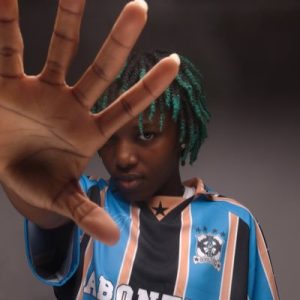
In a brief time frame, Indian rapper Hanumankind has quickly ascended as a champion in the nation’s blossoming hip-bounce scene. His track Huge Dawgs bested worldwide outlines as well as momentarily outperformed Kendrick Lamar’s diss Dislike Us. The BBC investigates the rapper’s fleeting ascent to acclaim.
In the video for Huge Dawgs, 31-year-old Sooraj Cherukat, otherwise called Hanumankind, oozes endless energy.
Shot inside a maut ka kuan (well of death) – a stunning show where drivers perform gravity-opposing tricks inside a goliath wooden barrel-like construction – he steps around the pit collectively of drivers flash past him.
The melody, a coordinated effort with maker Kalmi Reddy and chief Bijoy Shetty, has procured more than 132 million streams on Spotify and 83 million perspectives on YouTube since its July discharge, catapulting Cherukat to worldwide notoriety.
Outwardly, Cherukat’s music follows the hip-bounce format of conveying hard-edged accounts of road life through express verses and crude composition.
However, a nearer review uncovers a rapper, who utilizes his music to ride his particular characters.
Brought into the world in the southern Indian territory of Kerala, Cherukat spent his life as a youngster befuddling the world – generally as a result of his dad who works with a main oil organization – and has lived in France, Nigeria, Egypt and Dubai.
Yet, he spent his early stages in Houston, Texas – and it was here that his melodic profession came to fruition.
Not at all like the notable East and West Coast rap competition in the US, Houston additionally has a particular hip-bounce culture that hangs out by its own doing.
In Houston’s hip-jump scene, hack syrup is the medication of decision. Its bewildering impact prompted the making of the “messed up” remix, where tracks are dialed back to mirror the syrup’s impact.

Cherukat has frequently discussed how his music is an understood gesture to Texas hip-bounce legends, for example, DJ Screw, UGK, Enormous Rabbit and Undertaking Pat, who he grew up paying attention to.
Despite the fact that their impact is clear in his rap, his style advanced further after he got back to India in 2021 in the wake of exiting school.
He procured a business degree and worked at firms like Goldman Sachs prior to acknowledging it wasn’t really for him. That is the point at which he chose to seek after rapping full-time, an energy he had beforehand just sought after as an afterthought.
Similar as his own life, Cherukat’s music likewise mirrors his work to shed his cosmopolitan character and reconnect with his Indian roots.
His melodies frequently strikingly investigate the battles of southern Indian road life, mixing hard-hitting vocal conveyance with appealing rhythms. Every so often, tabla beats and synthesizers supplement his stanzas.
“We got issues in our country cause there’s parties at war,” he scoffs in a melody called Genghis, which was shot in the paths of Bengaluru, where he resides.
In Huge Dawgs, Cherukat offers an option in contrast to the bling and richness related with standard rap by dumping ostentatious vehicles and deciding to zero in on little city doubles, who come from unfortunate families and are essential for a perishing work of art in India.
“These are individuals that are the genuine gamble takers…Those are the huge canines, no doubt,” he told Complex site.
However, despite the fact that the aggressive energy of his music has figured out how to knock some people’s socks off, he has gotten analysis as well.
Some vibe his tunes are less effective for Indian audience members. Dissimilar to many companions who rap in vernacular dialects, Cherukat sings in English, which might restrict his reverberation with non-English-talking crowds.
Others censure him for impersonating Western specialists too intently and taking on a tokenistic way to deal with his Indian character.
“His tune cast Indians and South Asians as serious players in the Western rap scene which is perfect,” said Abid Haque, a PhD understudy in New Jersey.
“Be that as it may, he sounds an excessive amount of like an American rapper lifted inappropriately into the Indian scene. While the Enormous Dawgs music video depended on an Indian tasteful, the verses and music feel separated from an Indian reality,” he added.
It’s a duality that is, seemingly, likewise tracked down in Cherukat’s comprehension own might interpret his work.
On one hand, getting back to India has been an approach to exploring his feeling of having a place: “I think it truly formed me as somebody who never truly had a spot to call home… what’s more, that sort of molded the manner in which I see music, individuals, and culture,” he told Complex.
However, he likewise demands seeing himself from a more extensive vantage: “I’m not an Indian rapper, but rather I’m a rapper from India,” he’s said in prior interviews, making sense of that he puts himself beyond the nation’s flourishing hip-jump scene.
The rapper has confronted a blast of bigoted remarks online for his extraordinary style. A few global audience members battle to acknowledge that he is from India since he doesn’t “look or sound” like their assumptions. In the interim, his Indian crowd pillories him for similar reasons, wishing he adjusted more to their picture of Indian character.
In any case, this precise placelessness of his work fans have come to adore to such an extent.
To them, he is a classification jumping road writer who took the old hip bounce customs he grew up with and infused it with new friendly editorial.
“He isn’t attempting to take special care of an Indian crowd, which shows in his music and he is proud in regards to it,” said Arnab Ghosh, a therapist situated in Delhi who as of late found Hanumankind through Huge Dawgs.
“At the point when I stand by listening to his music it tends to be from anyplace on the planet. That kind of comprehensiveness is interesting to me.”
Conquering assumptions for what a South Asian rapper can accomplish and securing himself according to his very own preferences may be Cherukat’s most noteworthy victory – and challenge.
As he once said: “You keep specific things as your underlying foundations, however it depends on you to adjust to the climate and take the path of least resistance, as long as you don’t think twice about respectability.”






